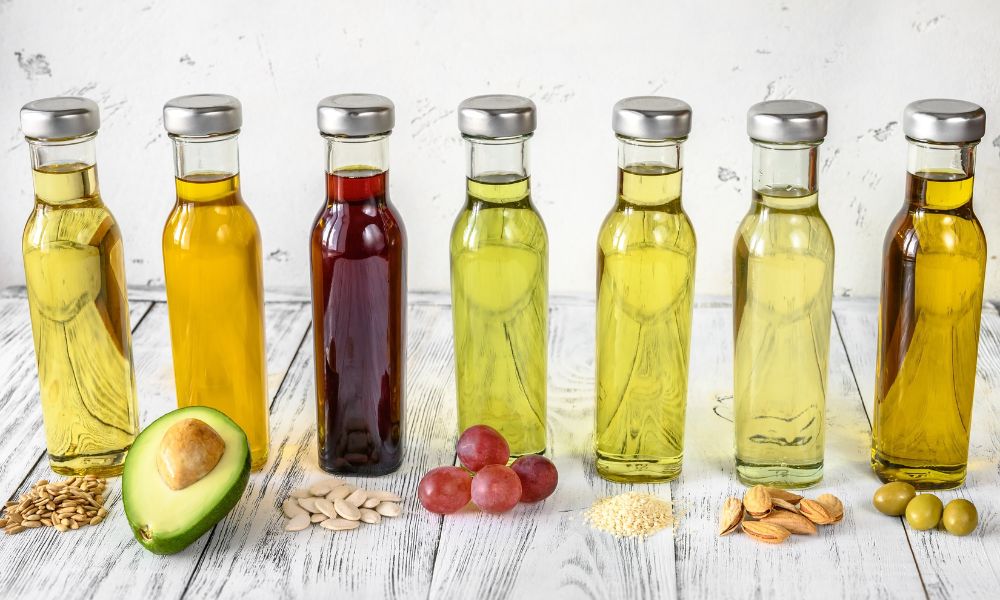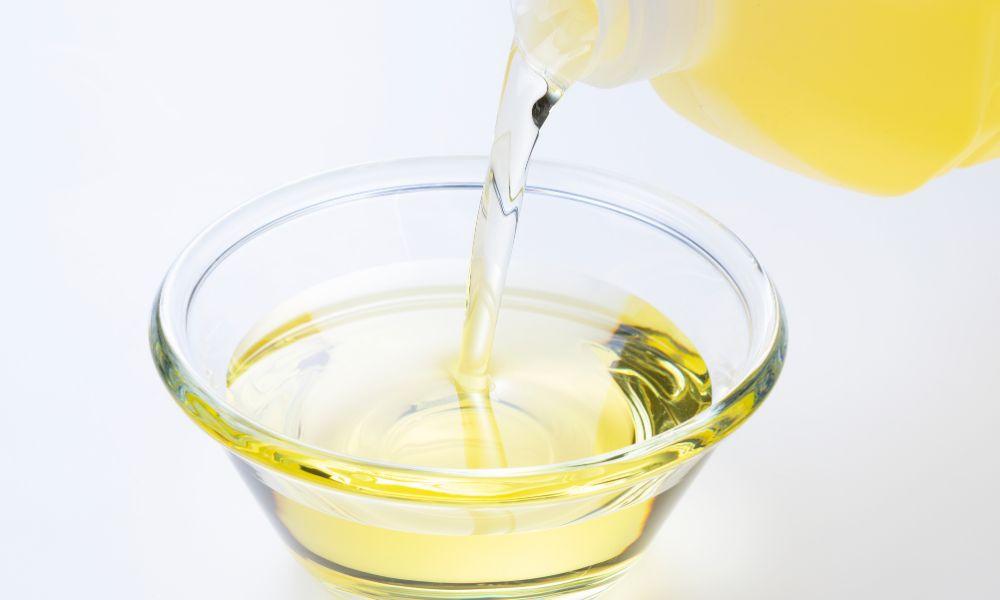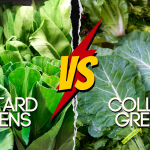Understanding the shelf life of vegetable oil is essential, as it plays a vital role in many cooking processes. From frying and sautéing to baking and making salad dressings, vegetable oil can enhance the taste and texture of many dishes.
In this article, we’ll delve into how long vegetable oil lasts once opened and explore recommendations on tips for storage and extending its shelf life.
What Affects the Shelf Life of Vegetable Oil?

Several factors impact the longevity of vegetable oil, and one of the critical aspects to consider is the storage condition. How you store the vegetable oil can greatly affect how long it will last once opened. Exposure to light, air, and heat can significantly impact the shelf life of vegetable oil and hasten its degradation.
When vegetable oil is exposed to light, its natural antioxidants can break down, giving rise to rancidity. Additionally, prolonged exposure to air causes the oil to oxidize, changing its aroma and taste. Lastly, heat can accelerate the breakdown of oil components, shortening its shelf life and even posing a safety risk.
How Long Does Vegetable Oil Last Once Opened?
The average shelf life of vegetable oil once opened primarily depends on storage and the type of oil. However, opened vegetable oil can generally last for 6 months to a year.
Signs of Expired Vegetable Oil
- Unpleasant off smell (rancid or sour)
- Cloudy or thickened appearance
- Changes in taste (bitter or off-flavors)
- Mold or debris floating in the oil
A simple taste test can help you determine whether or not your vegetable oil is still good to use. Of course, make sure you follow proper food safety practices when conducting a taste test. Dip a clean spoon or utensil into the oil and take a small taste. If it tastes bitter, stale, or otherwise off, it’s time to dispose of the vegetable oil.
Different Types of Vegetable Oil and Their Shelf Life
Various types of vegetable oils differ in terms of shelf life. Let’s take a closer look at some popular options and their expected shelf life once opened:
| Oil Type | Unopened Shelf Life | Opened Shelf Life |
|---|---|---|
| Canola Oil | 1 year | 6 months to 1 year |
| Olive Oil | Up to 2 years | 3 to 6 months |
| Sunflower Oil | 1 year | 6 months to 1 year |
| Coconut Oil | Up to 3 years | Approximately 1 year |
| Grapeseed Oil | 6 months | 2 to 3 months |
- Canola Oil: Canola oil has a typical shelf life of one year if unopened and six months to a year after opening if stored correctly.
- Olive Oil: While unopened olive oil can last for up to two years, once opened, it should be consumed within three to six months for optimal freshness.
- Sunflower Oil: Sunflower oil has a similar shelf life to canola oil, with one year unopened and six months to a year after opening under ideal storage conditions.
- Coconut Oil: Coconut oil can last for up to three years unopened and approximately one year after opening, given proper storage.
- Grapeseed Oil: Grapeseed oil has a shorter shelf life in general, lasting around six months unopened and only two to three months after opening.
If you ever run out of vegetable oil or need an alternative for a specific recipe, check out this informative guide on substitutes for vegetable oil for options to try.
Tips for Storing Vegetable Oil

Following some essential tips can greatly extend the shelf life of your vegetable oil by mitigating the effects of light, air, and heat.
Keep Vegetable Oil in a Cool, Dark Place
Store the vegetable oil in a pantry or cupboard away from direct sunlight and heat sources, such as stoves or ovens. A consistent and cool temperature can help maintain the oil’s freshness for a more extended period.
During one of my pantry cleanups, I discovered an opened bottle of vegetable oil that had been hidden behind other items for over a year. The bottle was stored in a cool, dark, and dry pantry, away from the stove and any sunlight. To my surprise, the oil hadn’t gone rancid, and it was still good to use. However, keep in mind that this is not the norm, and you should always check the signs of expired vegetable oil mentioned earlier before using old oil.
Refrigerate or Freeze Vegetable Oil for Extension of Shelf Life
Refrigerating or freezing vegetable oil can help extend its shelf life, especially for those that are more prone to spoilage like grapeseed, walnut, or flaxseed oils. However, note that freezing might change the texture of the oil, but it’s still safe to use once it returns to liquid form.
Fun Experiment Alert! I decided to freeze a small amount of vegetable oil to observe the changes in texture. After a few hours in the freezer, the oil became thicker, almost like the consistency of soft butter. When I let it sit on the counter for a while, it returned to its original liquid state and was good to use.
Alternative Uses for Expired Vegetable Oil

If you have expired vegetable oil that you can’t use for cooking, consider repurposing it for other various uses around your home instead of disposing of it immediately. Here are some ideas:
- Lubricating hinges and locks: A few drops of expired vegetable oil can help loosen squeaky hinges and door locks.
- Removing adhesive residue: Expired vegetable oil can be used to remove sticky residues left by labels or stickers.
- Paintbrush conditioner: After washing paintbrushes with soap and water, rinse them in expired vegetable oil to keep the bristles soft and conditioned.
- Firestarter: Soak a piece of cloth or cotton in expired vegetable oil and use it as a firestarter for camping or grilling.
- Gardening tool cleaner: Rub expired vegetable oil on your gardening tools to remove dirt and help prevent rust.
Proper Disposal of Expired Vegetable Oil
It’s essential to dispose of expired vegetable oil responsibly. Pouring it down the drain can cause plumbing issues and negatively impact the environment. Instead, follow these steps to properly dispose of expired vegetable oil:
- Cool the oil: Ensure the vegetable oil is at room temperature or colder.
- Pour into a disposable container: Use a sturdy, sealable container such as an empty milk carton or disposable food container.
- Seal and label the container: Securely close the container and label it as “used vegetable oil” or “bad vegetable oil” so that others know its contents.
- Dispose of appropriately: Place the sealed container in your regular trash or, if your local recycling center accepts it, bring it there for proper disposal.
Properly disposing of expired vegetable oil helps keep our environment clean and our plumbing systems functioning.
Final Thoughts
The shelf life and quality of vegetable oil are greatly influenced by its proper storage and the type of oil being used. Ensure that your vegetable oil remains fresh and usable by keeping it away from light, air, and heat. Always remember to check for signs of spoilage before using it in your cooking.
What is the best way to store vegetable oil?
Store vegetable oil in a tightly sealed container in a cool, dark place, such as a pantry or cupboard away from direct sunlight and heat sources.
How can I tell if my vegetable oil has gone bad?
Check for an unpleasant off-smell, cloudy or thickened appearance, changes in taste, or mold/debris floating in the oil.
Can vegetable oil be frozen?
Yes, vegetable oil can be frozen, especially if it’s more prone to spoilage like grapeseed, walnut, or flaxseed oils. Keep in mind that freezing might alter the texture temporarily, but it’s still safe to use once it returns to a liquid state.
Does the type of vegetable oil affect how long it lasts once opened?
Yes, the type of vegetable oil can impact its shelf life. More stable oils like canola, sunflower, or coconut oil tend to last longer. In contrast, oils that are more prone to spoilage, such as grapeseed, walnut, or flaxseed oils, have shorter shelf lives.
Can rancid vegetable oil be harmful?
Consuming rancid vegetable oil can lead to digestive discomfort and may have long-term health implications if ingested regularly. Always check for signs of spoilage before using vegetable oil.








